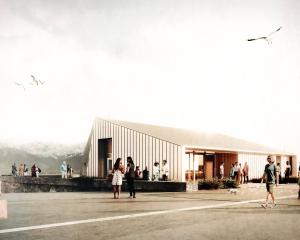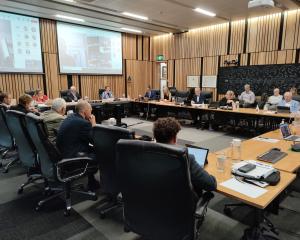
How to engage young people in the recovery was just one of the questions asked at the Waimakariri Jobs Summit held at the Rangiora RSA on Friday, organised by Waimakariri MP Matt Doocey and Dean Percy, managing director of creative agency The Mark.
While national scenarios predict unemployment could hit 9 percent, youth unemployment “could track as high as 25 per cent”, Doocey warned.
“We are already seeing young people disproportionately affected,” Enterprise North Canterbury business development manager Miles Dalton agreed.

Deputy Mayor Neville Atkinson, who runs the Kaiapoi Community Care and Employment Trust, says social enterprises and not-for-profit organisations can play a valuable role in working alongside firms to “produce work-ready people”.
Keynote speaker, National MP and former merchant banker Andrew Bayly, said he initially thought Covid-19 “would be a 12 to 18-month scenario”.
“I’ve got to say in the last couple of days I’ve actually changed my mind. I’ve become a lot gloomier.”
Developments globally tended to indicate Covid-19 could lead to a four to five-year recession and it could be longer, Bayly said. But New Zealand was in a good position compared to other countries because of its relatively low debt levels of 20 per cent of gross domestic product, which was set to double in just three months and double again in the next four years.
By comparison the United States’ debt level was 107 per cent of GDP before Covid-19, while European countries averaged 67 per cent.
“The wage subsidy has got us through the lockdown, but when that comes off there will be some difficulties and I think we will see some businesses failing.”
Agriculture was playing a vital role in keeping New Zealand working, but more needed to be done to help recovery, Bayly said. “We need to do the large-scale infrastructure projects, but we need to do large-scale integrated developments, for example house-building, because that’s what employs people.
“We need to welcome international students, but they will have to stay here. They won’t be able to flit back and forth. And we need the technology to enable more people to work from home. I think we should be thinking that this will go on longer than we planned at the outset.”
New Zealand has already reached “peak cow”, but there were opportunities in other produce such as avocados and kiwifruit, and the red meat sector is more profitable than it has been in years.
Bayly said he was impressed with the optimism shown by Waimakariri businesses.
Doocey said a researcher had been engaged to contact businesses for interviews and he plans to engage with local youth to get a youth perspective.
Findings will be shared with the local business sector, he said.














